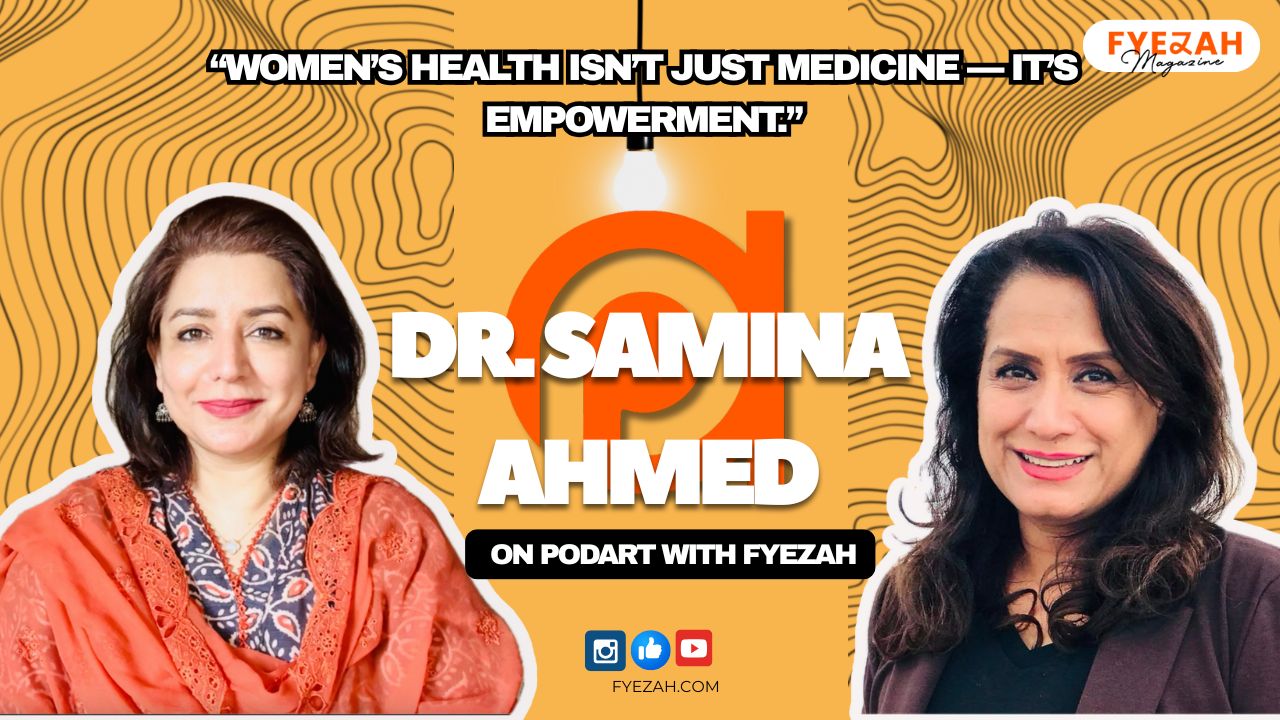In a world increasingly affected by mental health challenges, social division, and widespread public health issues, there is a growing demand for holistic and innovative solutions. The Salman & Samina Global Wellness Initiative (SSGWI) answers this call by uniting art, activism, and wellness under one powerful mission.
In a recent episode of Pod Art with Fyezah, guest Samina Ahmed, co-founder of SSGWI, shared profound insights on how creativity and activism together can foster healing, dialogue, and lasting impact in communities around the world.
What is SSGWI?
The Salman & Samina Global Wellness Initiative is a nonprofit organization co-founded by internationally acclaimed musician Salman Ahmad and his wife, Samina Ahmed, an advocate for human rights and health equity. The organization promotes global wellness through music, storytelling, and community engagement.
SSGWI works to raise awareness about mental and public health, particularly in underrepresented communities. It also supports youth empowerment through education, health campaigns, and outreach. Cultural diplomacy is central to its approach, using creative expression to foster understanding between nations and cultures. Additionally, the initiative addresses women’s rights and educational access, especially in developing countries.
By collaborating with international organizations such as the World Health Organization and UNAIDS, SSGWI delivers on-the-ground impact through culturally relevant programs.
Samina Ahmed on Using Art for Wellness
During her conversation on Pod Art with Fyezah, Samina Ahmed explained how artistic activism can bridge gaps between cultures and help people connect on a human level. She emphasized that creative tools like music, visual art, and storytelling are uniquely positioned to spark empathy and drive change in public health narratives.
She described how these methods have been used effectively in refugee communities, among marginalized youth, and in cross-cultural dialogues. For her, art is more than expression—it is a strategy for healing trauma, building confidence, and initiating social conversations.
Samina believes that true mental wellness cannot be achieved through medical solutions alone. Emotional healing, identity, and belonging are also essential, and art provides a path to explore these aspects of human experience. The episode highlighted the need for inclusive platforms that combine empathy with action, something Samina and SSGWI continue to lead with integrity.
Why Art, Mental Health, and Advocacy Belong Together
Samina stressed the importance of integrating art into conversations around mental health, particularly in regions where such topics remain stigmatized. She noted that artistic mediums allow people to express pain, hope, and healing in ways that traditional systems often overlook. This approach helps build safer spaces where people feel heard and valued.
The discussion also explored how creative activism can shape public policy, influence global narratives, and empower younger generations. Through workshops, campaigns, and global collaborations, SSGWI demonstrates how mental health, emotional wellbeing, and creativity are all interlinked—and all necessary for true progress.
Key Takeaways from the Episode
The episode offered a clear picture of how SSGWI has become a global bridge between art and health advocacy. Samina Ahmed’s leadership is an inspiring example of how women can lead movements that reshape society and policy. It also emphasized the value of platforms like Pod Art with Fyezah, which provide space for underrepresented voices and socially conscious conversations.
This dialogue serves as a reminder that storytelling, music, and community engagement are not just soft power tools—they are essential instruments of wellness, education, and change.
To hear more from Samina Ahmed and learn about how art can heal and unite, listen to the full episode of Pod Art with Fyezah.
Listen to the episode here →
http://www.youtube.com/@PodArtwithFyezah
If you believe in the transformative power of creativity, this episode is for you. Consider sharing it with someone working in health, education, or the arts. Conversations like this one help us build a more compassionate and inclusive world—one story at a time.
